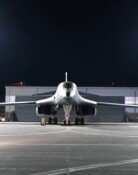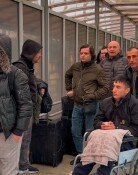Smart but opportunistic Syngman Rhee
Smart but opportunistic Syngman Rhee
Posted July. 13, 2018 07:49,
Updated July. 13, 2018 07:49

Few people are as controversial as Syngman Rhee, the first South Korean president, who is called the “founding father” as well as the “national divider.” What kind of person is he when analyzed from his hand writings? First of all, he is the best calligrapher among the presidents of South Korea. His hand writings stand out in intellectual elegance rather than in external decoration or elaborate workmanship in brush strokes. His hand writings in both Korean and English are refined and matured in part because he continued his calligraphy throughout his life but also because he has achieved a high level. Hand writings often tell the competency of the person, and Rhee’s exceeded those of Harry Truman and Joseph Stalin.
However, Rhee’s calligraphy also reveals that he was a cunning and opportunistic politician. His writings are vertically very long, indicating that his strong self-confidence and broad-mindedness, while suggesting his originality, spontaneity, emotionality, capriciousness and opportunistic tendency. They also indicate that he had flexibility and sociability, suggesting that he was not strict about himself or critical toward others, and had a good sense of humor. Particularly, the relatively bigger size of the first letters in his hand writing suggests that he was a man of stage. In fact, he liked to stand before people and wanted to gain fame. Such traits are also found in the cases of George Washington, John F. Kennedy and Ronald Reagan. Although Abraham Lincoln and Mahatma Gandhi were different, but they were exceptions.
Except that his hand writings were large and long vertically, they were the typical hand writings of anti-Japanese fighters. The straight and regular style suggests that he was internally solid, principled and conservative. The way his writings are pointed upward indicate his stubbornness and strong determination. Rhee’s hand writings are simple and clear, suggesting that he was a straightforward person. While it is up to each person to give historical evaluation of Rhee, it must have been very difficult to deal with the complicated political situation that would determine the future of the Korean nation, had it not been for his strong determination, judgment and astuteness. At the same time, it cannot be denied that his opportunistic and sly side became stumbling blocks to the advancement of Korea’s democracy.







